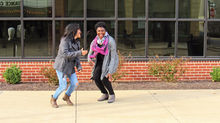Why the Rush to Read?
- Mar 26, 2017
- 3 min read
Sometime ago, I remember being appalled by an article I read where two parents with a parenting style and philosophy that was far from the mainstream explained that they weren't attempting to get their 7 year old to read or even learn the alphabet. The educator in me was screaming--kids as young as 2 are learning pre-reading skills, such as the recognition of words or text, and the alphabet. However, something like 2 years later, after several in-depth conversations on the American school system in a week's time, I stopped to ask myself why we're in such a rush to teach our kids how to read?
It could be due to a major shift in what our education system views as important: academics and academics only. There is absolutely nothing wrong with being book-smart and acquiring knowledge; but the problem in our country's schools is that academics far outweigh learning social and emotional skills, which have to be incorporating in order to make academic skills or knowledge worthwhile and useful. Companies don't just want people who are good at what they do; they want people who can collaborate and work efficiently with coworkers or customers.
According to OpportunityJobNetwork.com, the top ten skills employers want to see in their employees include communication skills, leadership skills, and interpersonal effectiveness, and after having worked as a preschool teacher for several years now and many conversations with my father who is a business man, I can attest to this as truth. I could have the world's best lesson plans and classroom activities. However, if I can't work well on a team of teachers or communicate effectively with parents, I'll find myself in a world of trouble, as much teaching involves interacting with support staff, families, and pairs or teams of teachers.
Valuing academics over all else is not something that has always been, nor is it something that occurs everywhere. My father went to primary school for several years in Jamaica, where he said the focus in those early years is on molding respectful and responsible kids. When I was in preschool and even Kindergarten, I distinctly remember learning through play. We did have some structured activities and work to do at our desks or as a group, but I remember spending a great deal of time playing in centers, learning to interact with peers, make friends and resolve conflicts. My years in early childhood and elementary education are contrasted greatly with what I've seen in our schools today, and I am positive that this is a result of our country pushing to improve its education system and produce the smartest kids, pupils, and eventually individuals in the workforce in the world. Whether we're going about this in the right or wrong way is a completely different topic--and most likely, another blog post--but nevertheless, our desire to have the best and the brightest has us pushing today's kids to know at 3 years old what we didn't know until we were 5, 6 or maybe even 7 years old.
Now, back to my original question: why are we in such a hurry to get our kids reading? It can't all be some big scheme to "one up" the rest of the world in our never-ending competition to see whose academics trump whose, can it? Maybe so in Big Brother's eyes, but there's something more important that we want for our children: freedom. Once a child can read proficiently, they have the freedom to learn for themselves and use newfound information to decide for themselves what they believe rather than purely going off what someone else has told them. They have the freedom to open up a book and explore new worlds--break free from reality for a time! Not only that, but they can become inspired to create their own worlds or share the truths they've found through reading in writing, as the two literacy skills are connected at the hip.
This freedom has to take precedence over the fight for first in academics. Otherwise, why rush?
(And even if this freedom is at the forefront, why rush? Children are brilliantly funny beings who always accomplish tasks and learn skills on their own time rather than ours.)
I don't want my students to know the alphabet because a little boy in India is 6 months younger and has already mastered the skill. I don't want my students to recognize print in the world around them because a little girl oceans away has already learned to read what they say. I want my students to learn the alphabet because those letters form words with meaning and power; and once they've harnessed that power, everything and more is theirs.
When did you or your child learn to read? What joys in reading have you or they discovered?
All the best,
Reina









































Comments